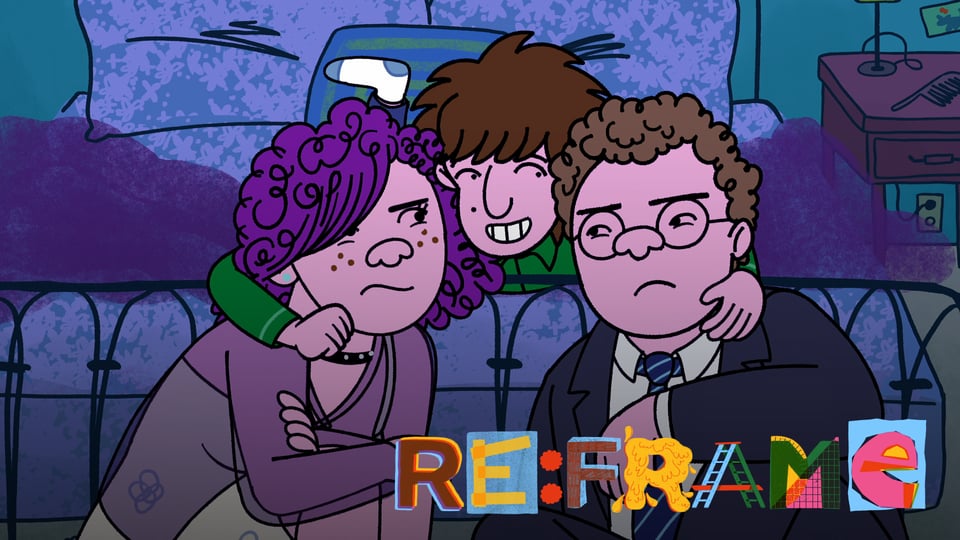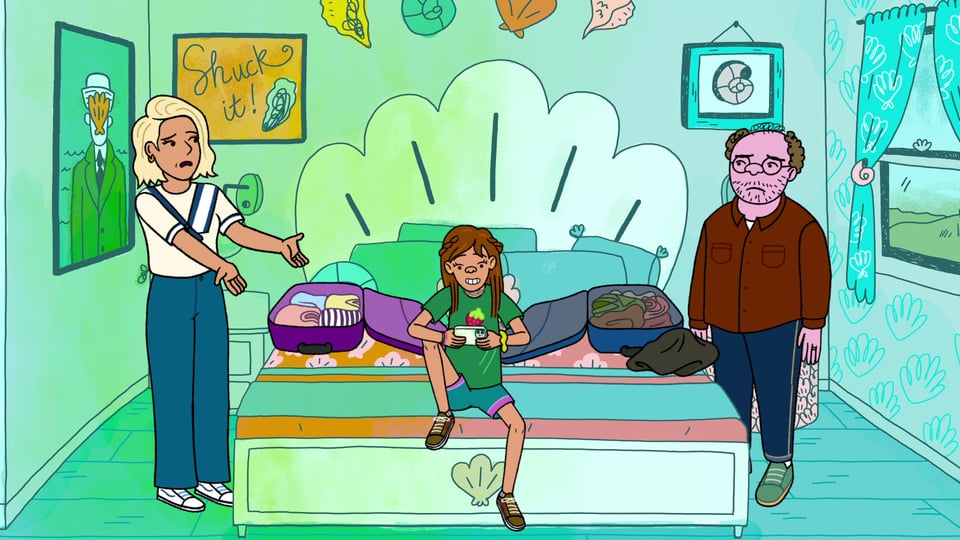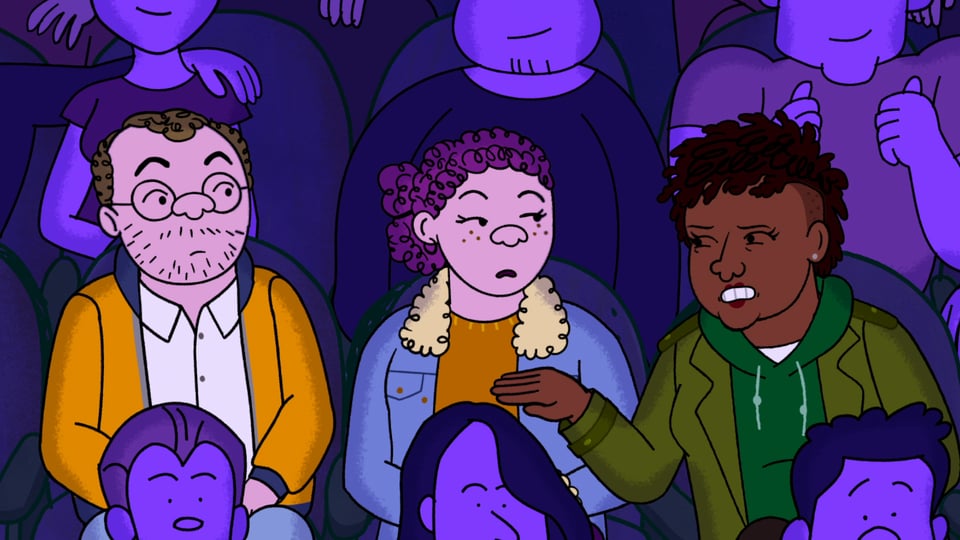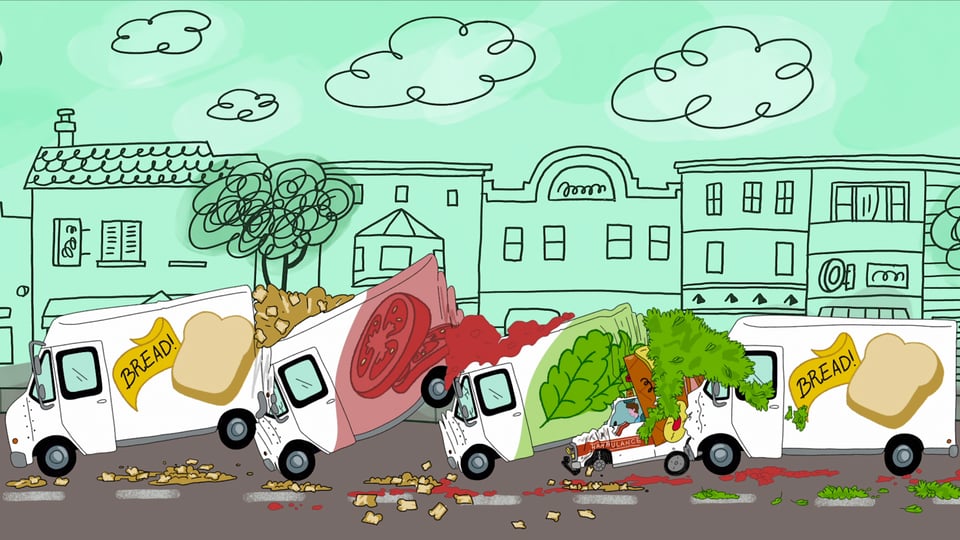Long Story Short or: A Multigenerational Condensation
BoJack Horseman creator Raphael Bob-Waksberg is back with something a little different – but the same love of comedy and tragedy.
by Kambole Campbell

The body of work of Raphael Bob-Waksberg is one of surprising versatility. On the way to his new series Long Story Short, from the popular BoJack Horseman, was the connective tissue of Undone, a psychedelic drama made in the form of rotoscoped animation (and anchored by an astonishing Rosa Salazar performance). Though Undone and BoJack could be said to share the vague overlapping traits of some kind of surreality and a person in a crisis of mental health, the tone and style couldn't be more different.
Long Story Short feels closer to BoJack on that sliding scale but still – to someone who admittedly bounced off the first season and never really picked it back up beyond the odd Margo Martindale joke – feels like it has an identity all its own. There are elements of the familiar; longtime collaborator, Tuca & Bertie creator, and BoJack character designer Lisa Hanawalt provided early concepts for character designs and drove the art style towards its charmingly crude scrawl; the cast are rendered in childlike impression which fits the multigenerational story.

As the name suggests, Long Story Short condenses decades and a portrait of multiple generations into ten sub-half hour episodes, jumping back and forth in the life of the Schwoopers (neé Cooper and Schwartz). One episode might begin in the '90s, jump to the 2010s for the rest and end in desolation in 2022. Another jumps back even further to the 1950s.
In the telling of these interconnecting anecdotal flashbacks and flash-forwards, the animation itself can be rather limited, but good timing and camerawork alleviates the burden of the joke telling without leaning too heavily on the dialogue. The compositions and layouts can seem similarly limited in their flatness. This doesn't, however, mean it isn't clever about how it uses that space, and not just in sight gags, either. The sense that this is unfolding on a page lends to more sincere moments, one highlight being an imaginative and fantastical sequence where Shira (Abbi Jacobson) imagines her son's future school as a sprawling fantasy land, each location blurring into the next in a horizontal pan.

Shira's rather elaborate and overblown, on-the-spot creation of this potential future is a comedic evocation of the entire show, of both how we draw connections to random and probably insignificant events in order to narrativize our own lives, each flashback and flash-forward illustrative of the cast's sometimes fraught relationships with each other. That relationship with memory is integral to Long Story Short, but never quite spoken aloud: it's present in how frames unspool into collage, in storylines where characters desperately try to piece together an old family recipe, which never tastes quite like how they remember it. Speaking with Alison Herman for Variety, Bob-Waksberg says he wanted the show to feel like "leafing through a photo album" as well as a daisy chain of memories associated with other random memories. What does emerge from that is a rather intense melancholy, of time stolen and moments lost with loved ones, of things these characters might have done differently. (It feels like the same kind of "told in retrospect" as Lady Bird, where the hindsight of the author is present but never fully addressed).
That attempt to make meaning out of cosmic randomness feels appropriate for a show so concerned with religion, and it comes together in a manner which feels pleasingly natural rather than chaotic and sprawling. Instead the chaos comes from the actual dialogue – whenever the full Schwooper unit comes together the show is a fantastic car crash of crosstalk and argumentative nonsense.

The sense of naturalism as far as the presentation of the family is concerned never feels like it's at the expense of good comedy – as well as snappy back-and-forth which draws on the tones and rituals specific to Jewish families there are broader ones which alternate between adult bite and the harsh realities of navigating life's various dissatisfactions and disappointments and winsome silliness: for example, a sight gag of a four-car pileup sandwiched between two bread trucks. That feels just at home in Long Story Short as does a cold open where a young Avi Schwooper (Ben Feldman) tries to get his family to play a TTRPG, but hits a wall when his mother Naomi (Lisa Edelstein – utterly fantastic) learns that it's from Germany. Another standout story is amusing for how the history of one character, Kendra Hooper (Nicole Byer) actually converts on a whim, and later comes to realize how much the religion is saving her.
I'm thrilled that this has already been renewed for a second season, because I found myself immediately craving more – more of its smart and jumbled unspooling of its characters' lives, of its ability to swerve any schmaltzy nostalgia with cutting jokes and for its surprisingly creative visual approach.
POST-SCRIPT:
In a show which explores the Jewish family unit and the significance (and strain) of the maintenance of traditions and what they mean to different generations and types of people, as well as exploring different schools of thought and different religious sects, it has already been brought up (as per the aforementioned Variety interview) that the show makes no mention of what Zionism might mean in this context, something to which Bob-Waksberg gives a rather unsatisfactory answer, given writer Alison Herman's points about the show's situation in the present day as well as its in-depth consideration of American Jewishness.